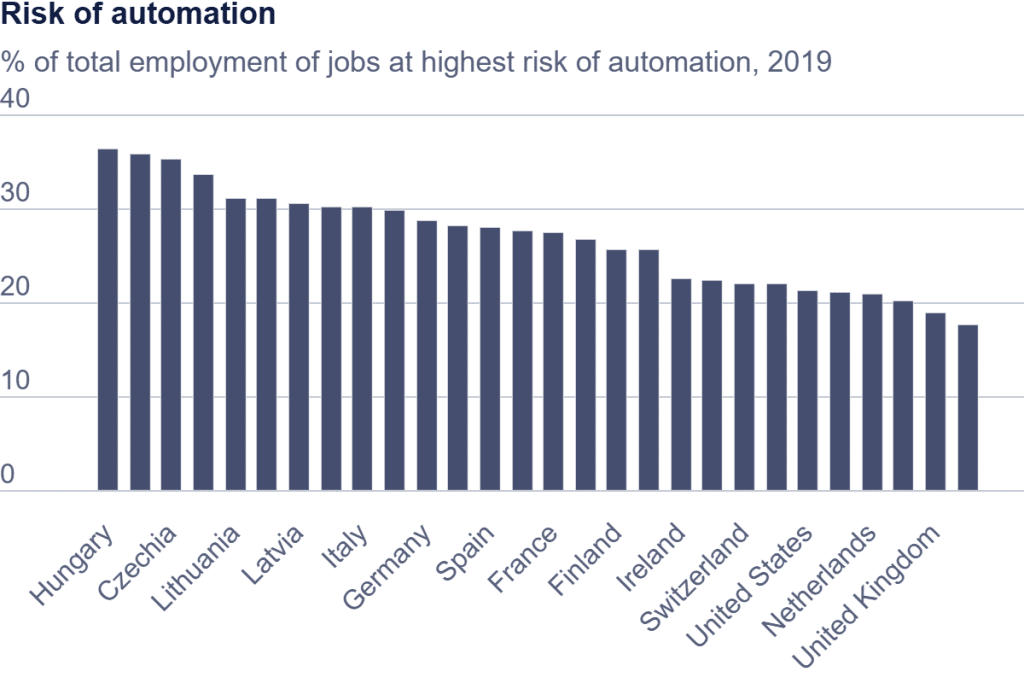
Work cultures are mutating at breakneck speed. The expansion of the gig economy, rapid AI breakthroughs, the rise of personal branding, and forward-thinking city designs such as the 15-minute city all shape this transformation. These shifts trigger major new opportunities but also create daunting hurdles for the future of work.
LinkedIn co-founder Reid Hoffman consistently foresaw major marketplace upheavals. He predicted social networking’s surge, invested early in the sharing economy through Airbnb, and accurately identified AI’s disruptive wave before ChatGPT broke out.
His latest forecast points to the downfall of the 9-to-5 model by 2034. Instead of single long-term jobs, he expects portfolios of contract-based roles across multiple fields. Flexibility and autonomy will skyrocket, but questions around job security, healthcare benefits, and retirement options loom large.
Let’s check each of the elements he talks about when it comes about the future of work. You might also want to check the below video on AI and how it will transform jobs, hence the term transformative AI.
- 1 The Future of Work: The Gig Economy, Opportunities and Pitfalls
- 2 The Future of Work: AI’s Transformative Power, Enhancements and Hazards
- 3 The Future of Work: Personal Branding in the Digital Age, A Survival Imperative
- 4 The Future of Work: The 15-Minute City, Rethinking Urban Life
- 5 The Future of Work Challenges and Considerations
The Future of Work: The Gig Economy, Opportunities and Pitfalls
Short-term, flexible gigs exploded in popularity through platforms like Uber, DoorDash, and Instacart. Workers enjoy independence and control over schedules. Yet financial stability remains elusive. Earnings fluctuate unpredictably, and long-term protections fall through the cracks.
For instance, in 2024, gig workers from companies like Uber and Instacart faced increased working hours but experienced a decline in earnings. Uber drivers’ earnings dropped 3.4% to $513 a week, despite a 0.8% increase in working hours. Instacart workers saw an 8% decrease in earnings to $194 weekly, with hours reducing by 4.9%. These trends highlight the financial instability inherent in gig work.
Moreover, gig workers often lack legal protections and benefits. Many face low pay and inconsistent work, with 52% earning less than minimum wage and 60% struggling to secure enough work. This instability fosters underemployment, skills degradation, and economic vulnerability.
Projections indicate that by 2027, freelancers will constitute over 50% of the U.S. workforce, with an estimated 86.5 million people engaged in freelancing. This shift is attributed to the rise of specialized skills meeting global demand, enabling freelancers to command premium rates. Notably, 44% of freelancers report earning more than in traditional employment.
Maintain strategic pricing and seek diverse platforms to soften income shocks. Build specialized skill sets to stand out in a crowded gig marketplace. Collaborate with peers to share insights and advocate for fairer policies.
The Future of Work: AI’s Transformative Power, Enhancements and Hazards
AI accelerates workflows by automating repetitive duties and generating swift analytics. Customer service centers use AI for automated transcriptions and data-driven summaries, slashing response times and streamlining user interactions.
However, a recent survey uncovered that 77% of employees feel AI tools sap productivity, forcing them to revise automated content and learn unfamiliar systems. Their workloads increase, fueling stress and confusion.
AI-driven decisions also risk inheriting entrenched biases in training data, perpetuating inequality in recruitment, loan approvals, and beyond. Avoid complacency by consistently auditing AI outputs and diversifying data sources.

Hoffman refers to this transformation as the “cognitive industrial revolution,” suggesting that while AI will displace certain jobs, it will also create new opportunities and enhance productivity across sectors. He stresses the importance of adaptability and continuous learning, urging individuals to engage with AI tools to augment their capabilities and remain competitive in the evolving job market.
A good example is Fiverr that is already feeling (and adapting to) the influence on its business model from the AI powered work transformation.
Across OECD countries, approximately 27% of jobs are in occupations highly susceptible to automation. These roles predominantly employ low-skilled, young, male workers.
The Future of Work: Personal Branding in the Digital Age, A Survival Imperative
Traditional career paths wane as project-based gigs and skills-based hiring take center stage. A polished personal brand now stands as a non-negotiable asset. Bolster your online presence with tangible proof of expertise. Showcase case studies, insightful commentary, and consistent engagement on sites like LinkedIn or niche forums.
Competition runs wild, so craft a unique identity. Add fresh multimedia content, highlight measurable outcomes, and cultivate a community of supporters who amplify your message. Maintain authenticity and value-driven content to avoid bland, generic self-promotion.
The Future of Work: The 15-Minute City, Rethinking Urban Life
Modern urban planners champion the 15-minute city, a concept that places core necessities – groceries, schools, healthcare, and leisure – within a quick walk or bike ride. Cutting commute times boosts environmental health and saves precious hours.
Existing city infrastructures require massive overhauls and robust policy changes to meet this ideal. Planners must integrate mixed-use zoning, improve pedestrian pathways, and advance public transport networks. Though challenging, these efforts promise thriving, hyper-local neighborhoods that elevate mental health and reduce congestion.
The goal is to create self-sufficient communities, reduce reliance on long commutes, and enhance the quality of life. Cities like Paris and Melbourne have begun implementing this concept, aiming to foster local economies and promote sustainable living.
The Future of Work Challenges and Considerations
While these developments offer numerous opportunities, they also present significant challenges. The gig economy, for instance, often lacks the stability and benefits associated with traditional employment, leading to concerns about job security and worker rights. The integration of AI raises questions about data privacy, ethical use, and the potential for widening socioeconomic disparities if access to technology is uneven.
Moreover, the shift towards personal branding and flexible work arrangements blurs the boundaries between professional and personal life, potentially leading to burnout if not managed carefully.
